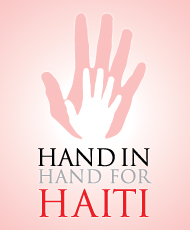Latest posts by Martin Moodie (see all)
- Back in New Zealand, Aotearoa, land of the long white cloud - March 11, 2025
- In celebration of The Moodie Davitt Report wāhine - March 8, 2025
- Celebrating Shiseido’s affirmation that age is just a number - March 1, 2025

[Publisher’s introduction: I have been in Haiti over recent days in my role as a Founding Member of the Hand in Hand for Haiti Steering Committee*. There I joined up with my co-Founders, Ed Brennan, Chairman and CEO of DFS and Olivier Bottrie, President of The Estée Lauder Companies Travel Retail Worldwide.
We were there to advance the work of a unique travel retail industry project to help the people of Haiti (and particularly the children) in reconstructing the earthquake-ravaged country.
Hand in Hand for Haiti (www.HandinHandforHaiti.com), which has already raised over US$1.8 million, will build hurricane-proof, anti-seismic, sustainable primary school facilities in flood-free zones of Haiti in an area of great need. The Moodie Blog has been tracking that visit, culminating in this final article.]
‘Dèyé mon, gin mon’. The Haitian proverb (loosely translated as ‘Beyond mountains there are more mountains’) is not a reference to the country’s rugged landscape but an allusion to the fact that as soon as one problem is solved in Haiti, another appears.
Long before the tragedy of the 12 January earthquake, Haitians had many mountains to climb. The country’s history, grounded in the atrocity of the slave trade and shaped through the creation (through a slave revolt in 1804) of the first black Republic, has known poverty, catastrophe, dictatorship, crippling foreign debt and human suffering through much of its tumultuous history.
Read the guide books (of which there aren’t many) and post-earthquake newspaper articles and you’ll hear the phrase ‘Poorest country in the Western Hemisphere’ repeated ad nauseam.
And indeed, by many important indicators, it is. Certainly in terms of GDP per capita (203rd out of 228 in the world, according to the CIA Factbook). Some 80% of the population live under the poverty line and 54% in abject poverty.
Alas, those sad figures will look even worse after the 12 January earthquake. And Haiti is also poor measured by almost any other indicator of a nation’s well-being. An appalling maternal death rate, for example. Chronic infant mortality. An estimated two-thirds of the labour force do not have formal jobs. Widespread malnutrition. This shameful list goes on. And all in a country just an hour away from Miami.
Overlay all that with some of the most substandard building conditions in the world, and a calamitous 7.0 magnitude earthquake (the worst since 1770) that struck just ten miles outside the country’s most densely populated zone and you begin to understand the level of catastrophe that occurred on 12 January.



But, as the Hand in Hand for Haiti team discovered during our visit to the country from 2 to 8 March, Haiti is also a rich land. Rich in culture; rich in language; rich in diversity; rich in history, heritage and civic pride; rich (in places) in natural resources and beauty; and, above all, rich in spirit and resilience.


Our kindest of hosts for the week (together with his wife Fafie), local businessman Peter Frisch, told me: “Tragedy is a constant proposition in Haiti. On an everyday basis people are faced with strife, a fight for survival and a way of finding the next meal.”
But just because the overwhelming majority of Haitians are conditioned to hardship should not make it acceptable to the outside world. We cannot stand back and allow this deprivation, accentuated by natural disaster, to be perpetuated. The time has come to create what many respected commentators are already calling ‘a new Haiti’.
Famous Haitian singer and humanitarian Wyclef Jean wrote recently: “Haiti was great and could be – if we can only get the post-earthquake recovery reconstruction right – great again. This is an enormous chance for Haiti, and it will take the right government and international community of business leaders.
“The people of Haiti are strong. That is why they are worth investing in. We need an imaginative Marshall Plan for Haiti that does not cave in to despair but builds on the country’s past glory.”
Through Hand in Hand for Haiti, the travel retail industry – a true, instantly definable global business community – is playing a small but significant role in making Haiti great again. That is not meant to sound grandiose but is simply a statement of intent. And we will start by helping the country’s children.


When the project’s founders announced this venture on 3 February, we realised we had a huge responsibility on our shoulders; a huge burden of trust from the industry to which we all belong.
With a remarkable US$1.85 million in donations already, that responsibility and that burden have both increased sharply. We must reward the faith that has been shown in us, by spending the money wisely, effectively and transparently. Both for the people of Haiti, and those many kind souls (corporate and personal) who have supported us, we also must deliver.
That’s precisely why we spent a week touring various parts of Haiti, from the stricken capital city of Port-au-Prince and its desperate slums to the remote, chronically poor but ultimately magnificent splendour that is Les Abricots to the west.
We must site our school not only in a part of the country where need is great (that definition, in fact, could embrace almost all of Haiti) but where we know we can make it work.


For this is no ‘feel-good’ project that is going to be dropped in and forgotten about. Neither is it some western model imposed on a reluctant local community. The members of the Steering Committee know we must work with local partners and together create an educational institution that is part of a coherent community development programme that will ultimately embrace and link with areas such as vocational skills training, medical services, investment and job creation.
A week in this troubled, contradictory, maddening, inspirational country has encouraged us that such a vision is achievable. We are now so much further down the road in terms of delivering our aims.
The level of support from our industry has been incredible. What we are seeking, from both established and future donors, is continued buy-in to the project. We hope that many supporters will find new and innovative ways to involve their colleagues, staff, business partners and consumers with the school, once it is up and running.
We will keep you informed. For this initiative is not a one-off donation; it is a long-term, sustainable contribution to the remaking of a country. And, as I have written before, it will be a permanent testament to a time when the travel retail industry stood Hand in Hand for Haiti.
[Note: All costs of the fact-finding mission in Haiti were met by the Steering Committee members, not from donations].
[Note 2: You can donate to Hand in Hand for Haiti via www.HandinHandforHaiti.com].

Dear Martin,
Words cannot express the gratitude that i have in my heart for your generosity toward my country. We have yet to meet. I am sure it will come in due time and in an appropriate circumstance . I follow your letters and i live your journey with the team and my husband thru your every words. Soon, i will join the team and we will start making a difference as little as it may seem, it will change the lives of children one at a time.
Alexandra
Dear Martin,
I have eagerly awaited each installment of your letters.
Your ability to put into words such emotion and feeling is a gift. Thank you for conveying the passion so beautifully, it was a week of so many memories, but perhaps the most important of all was the humanity.
Warmly,
Debbie Brennan
Martin.
Astonishing! You have shown all our colors. First article ever written so
truthfully and beautifully! A million thanks Hand in Hand for Haiti ~ for the children of Ayiti Cherie! You are “our guardian angels” ~ Sister Prema of Calcutta.
Alex (your local friend)